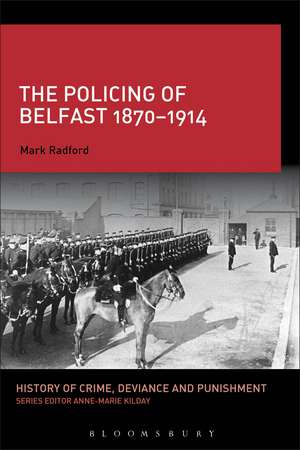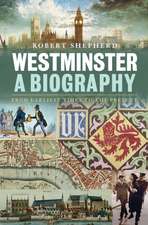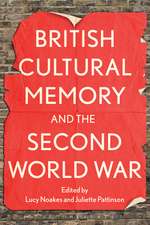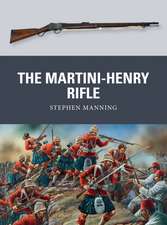The Policing of Belfast 1870-1914: History of Crime, Deviance and Punishment
Autor Mark Radforden Limba Engleză Paperback – 19 oct 2016
| Toate formatele și edițiile | Preț | Express |
|---|---|---|
| Paperback (1) | 257.50 lei 6-8 săpt. | |
| Bloomsbury Publishing – 19 oct 2016 | 257.50 lei 6-8 săpt. | |
| Hardback (1) | 774.20 lei 6-8 săpt. | |
| Bloomsbury Publishing – 22 apr 2015 | 774.20 lei 6-8 săpt. |
Din seria History of Crime, Deviance and Punishment
- 27%
 Preț: 182.92 lei
Preț: 182.92 lei - 30%
 Preț: 509.52 lei
Preț: 509.52 lei - 13%
 Preț: 238.01 lei
Preț: 238.01 lei - 13%
 Preț: 257.68 lei
Preț: 257.68 lei -
 Preț: 259.72 lei
Preț: 259.72 lei - 22%
 Preț: 224.41 lei
Preț: 224.41 lei - 22%
 Preț: 256.49 lei
Preț: 256.49 lei - 13%
 Preț: 256.20 lei
Preț: 256.20 lei - 20%
 Preț: 220.22 lei
Preț: 220.22 lei - 21%
 Preț: 216.62 lei
Preț: 216.62 lei - 23%
 Preț: 197.59 lei
Preț: 197.59 lei - 24%
 Preț: 196.79 lei
Preț: 196.79 lei - 23%
 Preț: 191.85 lei
Preț: 191.85 lei - 23%
 Preț: 190.41 lei
Preț: 190.41 lei - 30%
 Preț: 511.64 lei
Preț: 511.64 lei - 30%
 Preț: 511.31 lei
Preț: 511.31 lei - 30%
 Preț: 510.49 lei
Preț: 510.49 lei
Preț: 257.50 lei
Preț vechi: 295.41 lei
-13% Nou
Puncte Express: 386
Preț estimativ în valută:
49.28€ • 51.26$ • 40.68£
49.28€ • 51.26$ • 40.68£
Carte tipărită la comandă
Livrare economică 14-28 aprilie
Preluare comenzi: 021 569.72.76
Specificații
ISBN-13: 9781350011090
ISBN-10: 1350011096
Pagini: 256
Dimensiuni: 156 x 234 x 14 mm
Greutate: 0.36 kg
Ediția:NIPPOD
Editura: Bloomsbury Publishing
Colecția Bloomsbury Academic
Seria History of Crime, Deviance and Punishment
Locul publicării:London, United Kingdom
ISBN-10: 1350011096
Pagini: 256
Dimensiuni: 156 x 234 x 14 mm
Greutate: 0.36 kg
Ediția:NIPPOD
Editura: Bloomsbury Publishing
Colecția Bloomsbury Academic
Seria History of Crime, Deviance and Punishment
Locul publicării:London, United Kingdom
Caracteristici
Rasies important questions about urban verus rural policing and semi-military versus civil constabulary
Notă biografică
Mark Radford is a Tutor in the Department of Continuing Education at Oxford University, UK and a former member of the Regular British Army and Royal Ulster Constabulary.
Cuprins
Introduction 1. The Most Barbarous of Towns 2. Black Enamelled Peelers 3. Tripping Up a Policeman 4. A Peculiar Disorder 5. Closely Akin to Actual Warfare 6. First Stand of the RIC 7. The Dark Eleventh Hour Conclusion
Recenzii
What Mark Radford offers is an important new approach, an exploration of the riots as a law and order problem, from the perspective of the Royal Irish Constabulary (RIC) ... Radford does a fine job of highlighting various institutional and operational factors that hampered the quasi-military RIC force in its civil policing role in Belfast.
This is a fascinating and very readable account of policing that was, and still is, very different from the rest of the UK.
Mark Radford has written an excellent study of an important subject. His book casts a new light on both policing in Ireland and the history of Belfast. He investigates the work of members of the Royal Irish Constabulary in their everyday duties as well as in their response to the problems of a deeply divided city. This story includes not only sectarian riots but also a police strike in 1907. The police reaction to political events, 1912-14, is well covered. Readers will be impressed by his sure handling of a wide range of sources from parliamentary reports to official police correspondence and diaries.
Belfast has often been likened to a 'volcano', split by 'seismic' sectarian fissures. The question is: how do you control a volcano? Mark Radford's impressive study of the policing of the Belfast 'volcano' between 1870 and 1914 amply demonstrates the sometimes insurmountable problems faced by the Royal Irish Constabulary in trying to manage such a combustible city. But as well Radford examines ordinary policing, outside times of turmoil, when Belfast was in fact a remarkably law-abiding place. This book not only tells us much about the bitter and violent politics of Belfast during a vital half century, but also much about the men from rural Ireland, both Catholic and Protestant, who struggled to make the city liveable for all, regardless of class, culture or creed. The book is highly informative and instructive, but also on occasion surprising, ironic and even sad.
This is a fascinating and very readable account of policing that was, and still is, very different from the rest of the UK.
Mark Radford has written an excellent study of an important subject. His book casts a new light on both policing in Ireland and the history of Belfast. He investigates the work of members of the Royal Irish Constabulary in their everyday duties as well as in their response to the problems of a deeply divided city. This story includes not only sectarian riots but also a police strike in 1907. The police reaction to political events, 1912-14, is well covered. Readers will be impressed by his sure handling of a wide range of sources from parliamentary reports to official police correspondence and diaries.
Belfast has often been likened to a 'volcano', split by 'seismic' sectarian fissures. The question is: how do you control a volcano? Mark Radford's impressive study of the policing of the Belfast 'volcano' between 1870 and 1914 amply demonstrates the sometimes insurmountable problems faced by the Royal Irish Constabulary in trying to manage such a combustible city. But as well Radford examines ordinary policing, outside times of turmoil, when Belfast was in fact a remarkably law-abiding place. This book not only tells us much about the bitter and violent politics of Belfast during a vital half century, but also much about the men from rural Ireland, both Catholic and Protestant, who struggled to make the city liveable for all, regardless of class, culture or creed. The book is highly informative and instructive, but also on occasion surprising, ironic and even sad.
















